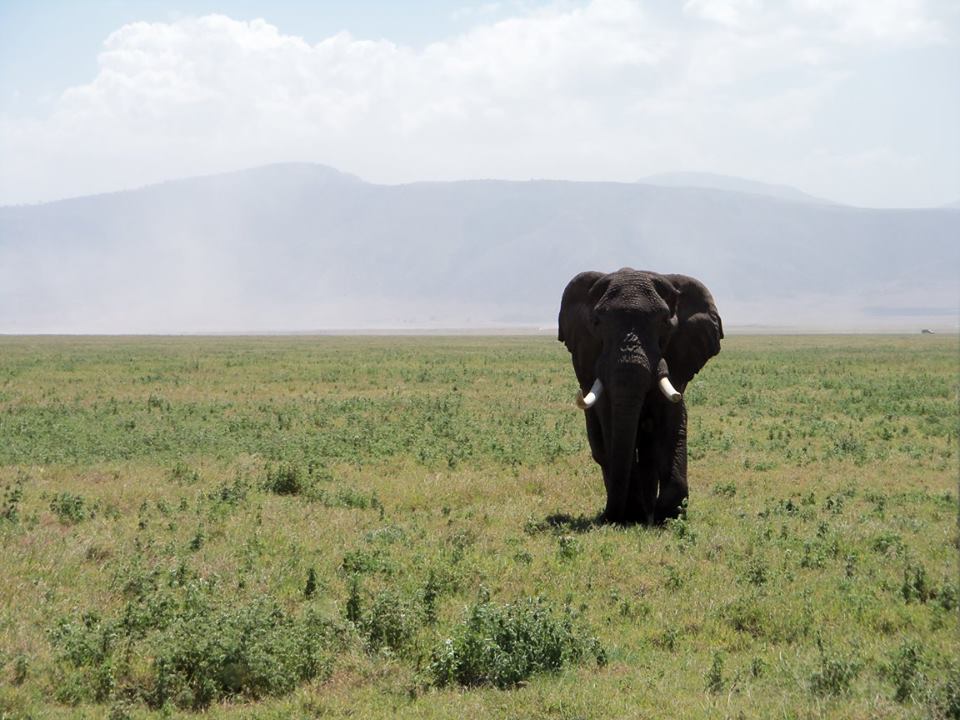(Taken by me!) I’ll include a handful of my pictures from Tanzania to draw you into this post. Ecotourism is only viable when the infrastructure is stable, communities see the returned value in conservation for tourism, and if the environment is suitable for tourists. The two most significant threats to ecotourism are… read more
Archives for 2015
From Africa to Asia: An Ivory Trafficking Incident
Policing ivory trafficking is hard for many reasons – but one of the biggest barriers is understanding the trafficking supply chain. In August of 2014, the Center for Advanced Defense Studies’ (C4ADS) published a report that helps frame how ivory trafficking works, including who is involved, how goods are moved… read more
US Foreign Assistance and Ecotourism
The United States supports wildlife conservation and the development of ecotourism in foreign countries primarily through monetary aid. Unfortunately, data that dis-aggregates ecotourism revenue from tourism revenue is not routinely collected. Thus, analysts encounter difficulty when attempting to quantify US monetary support of the ecotourism industry. Nonetheless, ecotourism is a… read more
Does illegal wildlife trafficking really fund terrorism?
A myriad of news sources have reported involvement by Al-Shabaab, a Somali-based Islamist insurgent group, in the trafficking of elephant ivory in Africa. Al-Shabaab, also known as Harakat al-Shabaab al-Mujahideen, operates under a mission to overthrow the Somali government and establish a state under Islamic Law. The U.S. Department of… read more
Religion can stop trafficking
Religious groups can stop the supply and demand for illicit wildlife goods. There is potential to reduce a large portion of demand if Buddhist Monks in Thailand and the Catholic Church in the Philippines change their ways. In Thailand, there is a “tiger temple”, located about 100 miles west of Bangkok… read more
Militarizing the response to poaching is just a band-aid
In 2012, Cameroon lost half of its elephant population. In February 2012, presumed Sudanese poachers entered Bouba N’djia National Park in Cameroon through Chad and slaughtered over 300 elephants. What was estimated at nearly half the elephant population of the park was indiscriminately slaughtered. Young and old elephant carcasses were found… read more
Meanwhile, in the Lege: Cracking down on shark-finning
Here in Austin, the Texas legislature is well into its biennial session. Amidst the thousands of bills that have been filed, one prominent bill has a strong wildlife conservation connection. In February Representative Eddie Lucio, III (D-Harlingen) filed HB 1579 that would ban commerce and transportation related to shark fins in Texas. … read more
Tanzanian travel
Over Spring Break, two other students and I traveled to Arusha, Tanzania to conduct some first person interviews for our ecotourism research (and relax as much as possible, it was Spring Break!). It was a big trip for me, since I had never been out of the country before. This… read more
Can tourism promote sustainable development and protect global wildlife?
How much is an elephant worth? Nothing, the entrance fee to the zoo, or the cost of a safari? How much are you willing to pay for save a rhino? And how much are we, as a society, willing to pay to save endangered species? Those questions have different answers;… read more
Lessons from elite interviews
This past week, I traveled to Washington, D.C. with three of my classmates to conduct elite interviews with U.S. government agency officials and NGOs to learn more about the nexus of wildlife crime and U.S. national security. This week was a learning experience in so many ways, and I thought… read more





